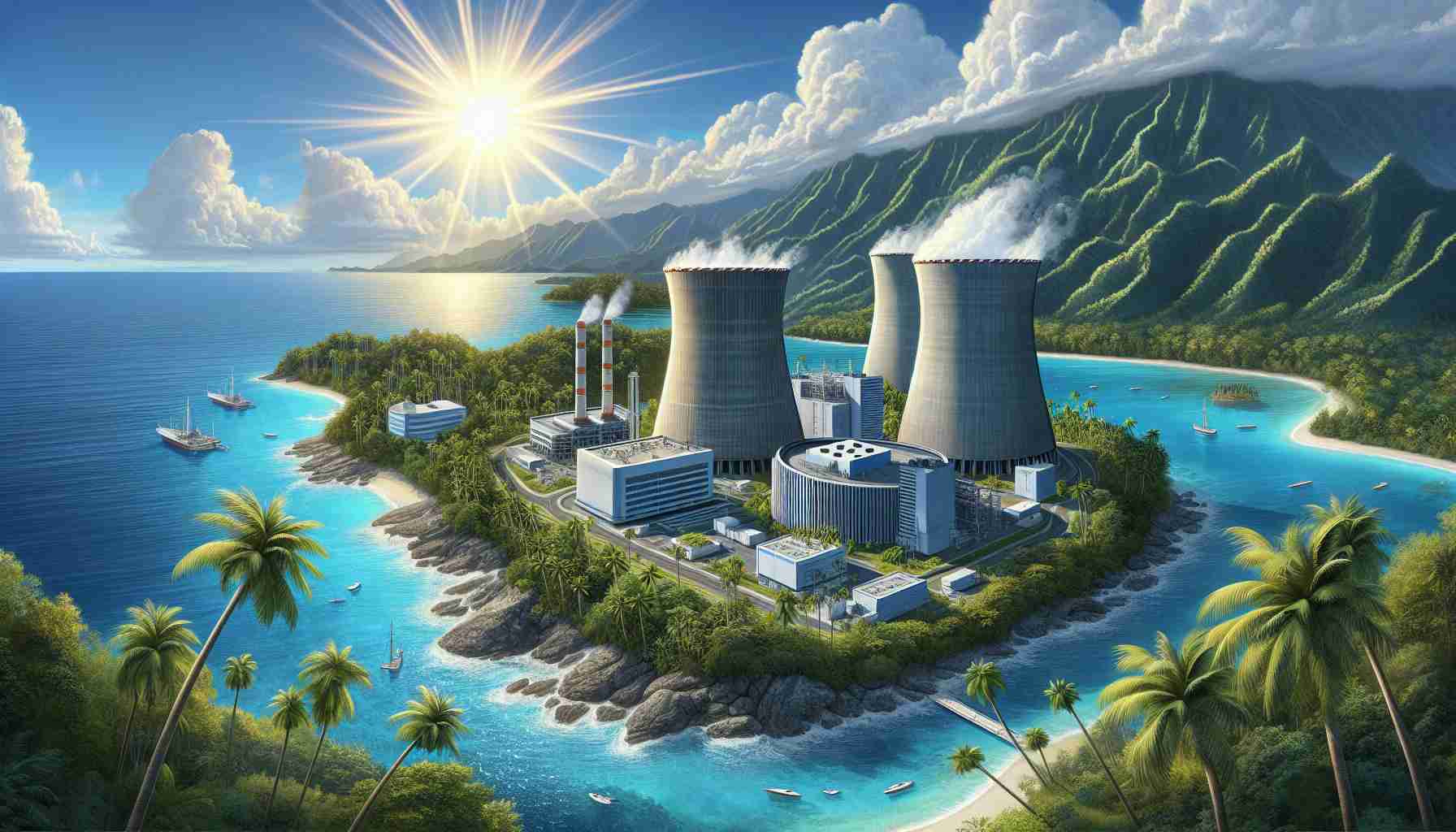New York’s Bold Energy Shift
As renewable energy initiatives encounter obstacles, New York’s Governor Kathy Hochul is turning her focus to the potential of nuclear energy. In her recent address, she stressed the importance of developing a strategic plan to implement advanced nuclear technologies, indicating the need for innovation in the state’s energy landscape.
Supporting Constellation Energy’s ambitions to secure federal funding for new advanced nuclear reactors at the Nine Mile Point facility demonstrates Hochul’s commitment to diversifying energy sources as federal policies shift away from offshore wind initiatives.
Experts assert that as demand from technology giants intensifies, nuclear energy could be pivotal in achieving New York’s climate aspirations, especially given the current challenges faced by wind energy. They highlight nuclear’s capacity for uninterrupted power supply, complementing New York’s growing energy requirements especially for data centers and manufacturing.
Despite historical concerns surrounding nuclear power, proponents mention the advancements in reactor safety and waste management as significant improvements over older plants. However, opposition from environmental groups persists, emphasizing the availability of alternative energy strategies, such as solar and energy efficiency improvements.
Hochul’s upcoming master plan, expected by next year, aims to foster discussions among stakeholders regarding the integration of advanced nuclear power into New York’s energy framework, potentially reshaping the state’s approach to clean energy in the years to come.
The Broader Impact of Nuclear Energy on Society and the Environment
Transitioning to nuclear energy in New York does not merely signify a shift in energy resources; it has profound implications for society, culture, and the global economy. As the demand for reliable and clean energy grows, particularly among technology companies and urban populace, nuclear power could emerge as a cornerstone of a sustainable future. Advancing nuclear technology not only promises energy security but also positions New York as a leader in the evolving landscape of clean energy innovation.
The implications of this energy strategy are particularly critical for the global economy, where nations increasingly prioritize climate commitments. States like New York could set a precedent, influencing international energy policy and spurring investment in nuclear technology decades into the future. This shift is crucial as countries seek to balance economic growth with environmental stewardship.
However, the environmental ramifications must also be monitored. While advanced nuclear reactors are touted for their safety, the challenges of nuclear waste management persist. Competing energy strategies—such as solar and wind—remain key players. Their incorporation into the energy mix will be essential for a genuinely sustainable model.
Looking forward, the success of New York’s nuclear initiatives could herald a significant trend, as further states consider similar transitions. As they confront similar energy demands and climate goals, the outcomes of these initiatives will likely influence public sentiment and policy on energy innovations worldwide.
New York Embraces Nuclear Energy: A Game Changer for Renewable Initiatives
New York’s Strategic Energy Transition
As New York State faces hurdles in its renewable energy initiatives, Governor Kathy Hochul is pivoting to the potential of nuclear energy as a vital component in the state’s energy strategy. Recent discussions highlight the urgency of developing a comprehensive plan to incorporate advanced nuclear technologies, aiming to revitalize New York’s approach to clean energy.
The Role of Nuclear Energy in New York’s Energy Future
Nuclear energy is emerging as a critical player in New York’s quest for sustainability. Governor Hochul’s endorsement of Constellation Energy’s efforts to obtain federal funding for new advanced nuclear reactors at the Nine Mile Point facility underscores a shift away from a sole reliance on offshore wind. With the backdrop of increasing demand from major tech firms, nuclear energy’s reliable and continuous power supply is increasingly seen as essential for supporting New York’s growing energy needs, particularly for industries like data centers and manufacturing.
Advantages of Advanced Nuclear Technologies
1. Safety Improvements: Modern reactors incorporate advanced safety features to mitigate risks associated with nuclear energy. This includes passive safety systems that function without external power or operator intervention.
2. Reduced Waste Generation: Innovations in waste management and reprocessing technologies allow for a more sustainable approach to nuclear waste, reducing long-term environmental impacts.
3. High Capacity Factor: Nuclear plants operate at a high capacity factor, ensuring a steady and reliable power supply, crucial for meeting base-load energy demands.
Pros and Cons of Nuclear Energy Expansion
Pros:
– Reduced Greenhouse Gas Emissions: Nuclear energy produces minimal greenhouse gases compared to fossil fuels, aligning with climate goals.
– Job Creation: The construction and operation of new nuclear facilities can create job opportunities and stimulate local economies.
Cons:
– Public Perception and Opposition: There remains a strong public concern regarding nuclear safety and radioactive waste management.
– High Initial Costs: The development and construction of new nuclear plants require significant capital investment, which can be a barrier.
Current Trends and Predictions
As the energy landscape evolves, market trends indicate a rising acceptance of nuclear energy as a complementary source alongside renewables. The combination of advanced nuclear technologies and other clean energy sources could drastically alter New York’s energy grid, creating a more resilient and diversified energy portfolio.
Sustainability and Innovation in Nuclear Power
Looking ahead, New York’s commitment to exploring nuclear energy could drive innovation within the sector. The state’s emphasis on sustainability, coupled with advancements in reactor design and energy efficiency, suggests a potential renaissance for nuclear power. Future frameworks may incorporate small modular reactors (SMRs), which offer a decentralized approach to energy generation, potentially easing concerns around large-scale nuclear projects.
Call to Action
As stakeholders prepare for the release of Hochul’s master plan next year, this will be a pivotal moment for New York’s energy future. Engaging a diverse range of opinions and interests in the nuclear discussion will be crucial to balancing safety, sustainability, and innovation.
For those interested in the future of energy in New York and beyond, stay tuned to developments on this topic by visiting New York State’s official website to follow updates and participate in discussions on energy policy.
The source of the article is from the blog publicsectortravel.org.uk



